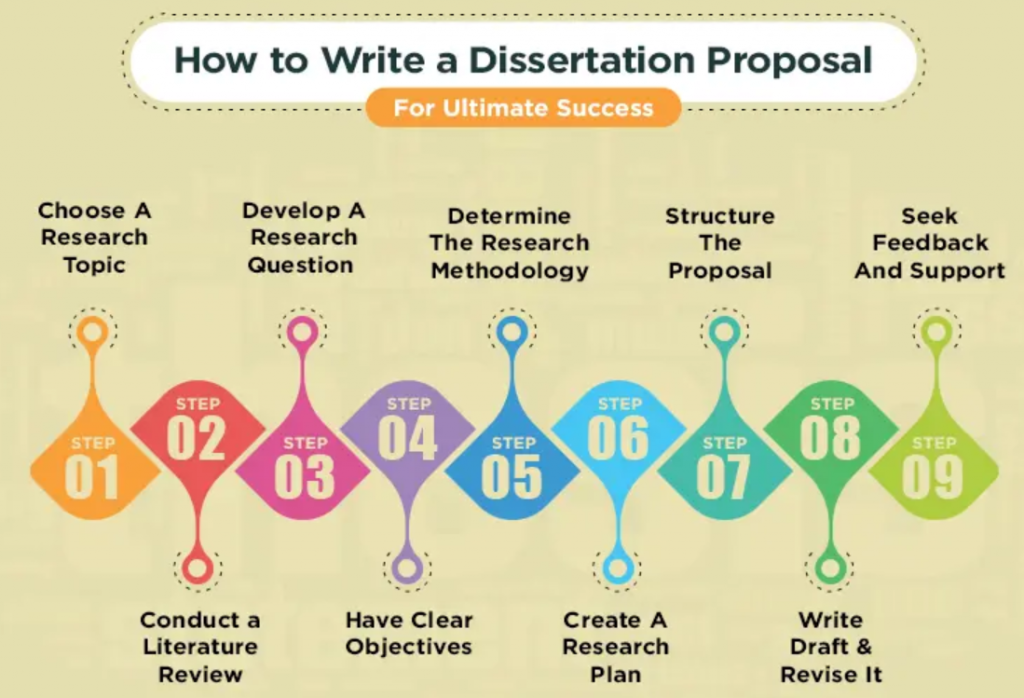The journey of writing a dissertation can seem daunting, but it all begins with a strong foundation: the dissertation proposal. A well-crafted proposal not only secures your supervisor’s approval but also serves as a crucial roadmap for your entire research endeavor. It demonstrates your understanding of the chosen topic, outlines your methodology, and convinces the reader of the project’s significance.
This article provides a comprehensive guide to understanding how to write a dissertation proposal that is both compelling and robust.
Understanding the Purpose of a Dissertation Proposal
Before diving into the specifics, it’s essential to understand the purpose of a dissertation proposal. It’s more than just a formality; it’s a persuasive document designed to:
- Define Your Research Question: Clearly articulate the central question your dissertation aims to answer.
- Justify Your Research: Explain why your chosen topic is important and contributes to the existing body of knowledge.
- Outline Your Approach: Describe the methods you will use to conduct your research and analyze data.
- Demonstrate Feasibility: Show that your research is achievable within the given timeframe and resources.
- Seek Approval: Convince your faculty advisor and dissertation committee to approve your project.
Key Elements of a Robust Dissertation Proposal
A successful dissertation proposal typically includes several core elements, each serving a critical purpose:
1. The Title Page and Abstract:
- Title: The title should be concise, informative, and accurately reflect the focus of your research. Avoid overly broad or vague titles.
- Abstract: This is a brief summary of your proposal, typically around 200-300 words. It should cover:
- The research problem.
- The main research question.
- Your proposed methodology.
- The expected significance of your research.
2. Introduction and Background:
- Introduce the Topic: Begin with a broad overview of the research area, gradually narrowing down to the specific focus of your study.
- Establish the Context: Provide relevant background information and contextualize your research within the existing literature.
- Identify the Problem: Clearly articulate the research problem or gap in knowledge that your dissertation aims to address. This will require a literature review.
- State the Research Questions: Present your research questions, which should be clear, concise, and focused. These will dictate the direction of your study.
- Outline Aims and Objectives: Describe the specific goals you hope to achieve through your research. These need to be achievable, realistic and measurable.
3. Literature Review:
- Synthesize Existing Research: Demonstrate your thorough understanding of the existing literature related to your topic.
- Identify Key Theories and Concepts: Discuss the major theories and concepts relevant to your research.
- Highlight Gaps in Knowledge: Point out the gaps or limitations in the current research that your dissertation aims to address. This is crucial to justify your study.
- Show How Your Research Will Contribute: Explain how your study will add to the existing literature and advance knowledge in your field.
4. Methodology:
- Research Design: Describe the type of research design you plan to use (e.g., quantitative, qualitative, mixed-methods).
- Data Collection Methods: Specify how you will collect your data (e.g., surveys, interviews, experiments, archival research). Be specific and clear.
- Sampling Strategy: Explain your sampling strategy and how you will select your participants or data sources.
- Data Analysis Techniques: Describe how you will analyze the data you collect. This includes detailing your statistical methods if necessary.
- Ethical Considerations: Address any ethical concerns related to your research, such as informed consent or confidentiality. You need to consider these throughout your research.
5. Timetable and Resources:
- Project Timeline: Provide a detailed timeline for each stage of your research, from data collection to writing and submission. Be realistic and break down the tasks.
- Resource Allocation: Describe the resources you will need to complete your research, such as funding, equipment, or access to archives. Explain where this funding is coming from and how feasible this project is with the resources at hand.
- Risk Assessment: Acknowledge potential challenges or limitations of the study and propose how they will be overcome.
6. Expected Significance and Contribution:
- Impact of Research: Explain the potential impact of your research on the field of study. What contribution will your research make?
- Practical Implications: Discuss the practical implications of your findings, if applicable. Why should people be interested in your research?
- Future Research: Suggest directions for future research that may stem from your findings.

Tips for Effective Dissertation Proposal Writing
Knowing the elements is just part of the picture; here’s how to write a dissertation proposal that stands out:
- Start Early: Don’t wait until the last minute to write a dissertation proposal. The research and planning process takes time.
- Consult Your Supervisor: Seek guidance and feedback from your supervisor throughout the proposal writing process.
- Be Clear and Concise: Use clear and precise language, avoiding jargon or overly technical terms. Make sure that you are understandable to your supervisor.
- Focus on One Key Idea: It’s better to delve deeply into one main issue rather than try to cover a huge topic superficially.
- Be Specific: Use specific examples and concrete details to support your arguments.
- Proofread Carefully: Errors in grammar and spelling can undermine the credibility of your proposal.
- Be Realistic: Set realistic goals and timelines for your research.
- Be Persuasive: Show the value and importance of your proposed research and why it is worth pursuing.
- Seek Feedback: Have your proposal reviewed by peers or colleagues for feedback before submitting it.
- Use the Proposal as a Blueprint: The dissertation proposal is not just a formality; it will serve as your roadmap throughout the dissertation process, so be specific.
Overcoming Challenges in Dissertation Proposal Writing
Writing a dissertation proposal can present unique challenges. Many students might think, “I need help with a dissertation proposal,” or even “Can someone write my dissertation proposal?” Here are some common obstacles and tips on how to tackle them:
- Choosing the Right Topic: Sometimes finding a suitable topic can be a hurdle. If you are struggling with this, talk to your supervisor and see if they can direct you. It can be useful to look at past dissertations in your field for inspiration.
- Formulating Research Questions: These should be focused and specific, which might be difficult to achieve. Make sure they are actually researchable.
- Finding a Gap in Literature: It can be hard to identify where the gaps in the existing research are. Deeply analyzing the literature is key to this.
- Methodology Challenges: If you are struggling with your methodology, seek advice from your supervisor and see if you can brainstorm together.
- Writer’s Block: If you are struggling to write, try breaking the task down into smaller chunks. This can help to make it less overwhelming.
- Feeling Overwhelmed: Writing a proposal can be a challenge, so do not be afraid to seek help from your university or academic support programs.
- Knowing where to look: “Dissertation proposal help” is readily available online from university resources and academic guides, so don’t be afraid to seek it. If you are still struggling, don’t be afraid to seek “dissertation proposal writing” service from professional tutors.
Conclusion
The ability to write a dissertation proposal effectively is a key skill for any aspiring researcher. While the task of writing a “proposal for dissertation” can seem like a mountain to climb, breaking it down into manageable sections makes it less daunting. By understanding the core elements of a strong proposal, seeking guidance, and following the advice provided, you can develop a robust proposal that paves the way for a successful dissertation.
Remember that the write a dissertation proposal process is an investment in the success of your research endeavor. It’s the initial step, so ensure it is done meticulously and thoughtfully. Knowing how to write a dissertation proposal is a crucial skill that is worth honing. Mastering the ability to write a dissertation proposal not only gets your research approved but also sets you up for success in the entire dissertation journey.
Get professional Dissertation Proposal Writing Service
At Exemplary Dissertations, we offer professional dissertation writing services for undergraduate, Degree and post graduate courses. Our service covers proposal writing, proofreading, editing, formatting and plagiarism removal. Apart from dissertation proposals, we also assist students to write essays, research papers and case studies.

